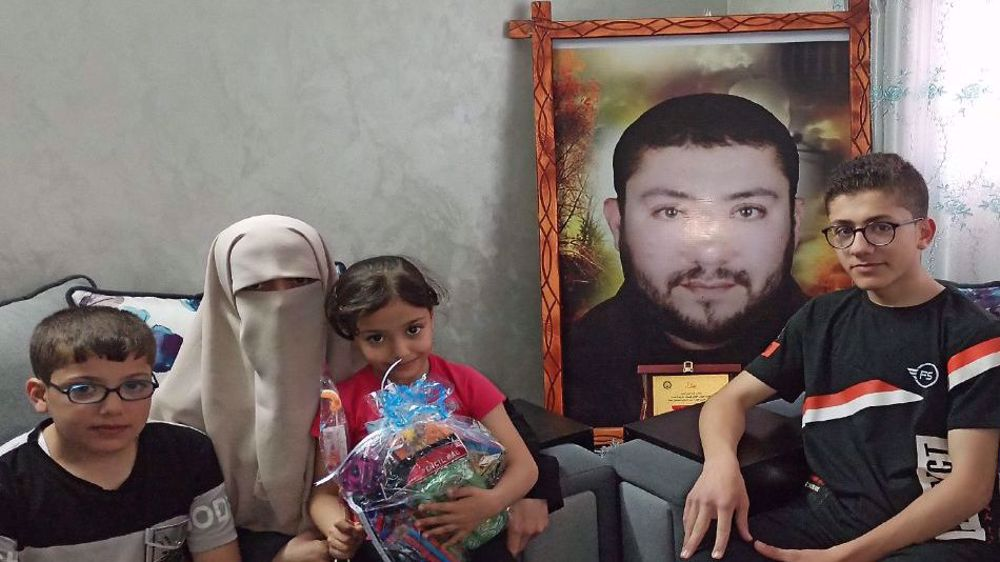
Family of Palestinian prisoner Mohammed Mortaja. (Photo by WANN)
Ramallah, November 5 (RHC)-- Fatima, the wife of Palestinian prisoner Mohammed Mortaja, says she was prevented from meeting him at an Israeli prison, calling it a tactic used by the Israeli regime to demoralize prisoners. The Israeli regime’s policies with regard to Palestinian prisoners have led to economic and emotional pressures on the families of detainees.
Mortaja’s family members recently spoke to WANN (We Are Not Numbers), a youth-led Palestinian nonprofit project in the Gaza Strip, on the situation around the arrest and the behavior of the apartheid regime.
Explaining the circumstances behind Mortaja’s arrest and Israeli accusations against him, his wife said that the occupation forces arrested Mortaja in early February 2017 while he was seeking to pass the Erez Crossing as part of his plan to attend various conferences related to his work at TIKA, a Turkish charity.
“Their accusation was based on the fact that, since the 2014 war on Gaza left huge losses and destruction, TIKA had received additional aid to support those who lost their homes,” she said, adding that the regime accused her husband of supporting terrorism by using this aid to develop weapons and tunnels. He was handed a 9-year sentence after two months of interrogation.
Referring to the economical hardships that her family is facing in the absence of Mortaja, she said they live in financial hardship, "but thanks to God and my neighbors in the building who support me and spare me from paying the water and electricity bills, we are getting along.”
The immediate family of a prisoner has the right to hold ten 45-minute visits before the sentence is issued, she said. "Unfortunately, we were barely allowed two visits, and were denied access to him after that," the wife lamented. She noted that Israeli authorities did not allow her to visit her husband during the two visits, calling it an "Israeli tactic to discourage the prisoners".
As children under the age of eight are allowed to touch and hug their fathers in prison, Mortaja had asked his wife to bring one of their sons, Farouk, who later managed to see his father accompanied by his grandmother.
Remembering the day when he visited the prison, Farouk said, “They made me wait for more than five hours without any reason, then searched me brutally and started interrogating me in a horrific way, as if I had committed a crime when visiting my dad.”
While desperately searching for his dad, Farouk later saw him behind a thick glass partition that separates prisoners from families. The phone that was installed for communication between the sides had much noise that they could hardly hear each other, according to the son. “Actually, this is one of Israel’s malicious policies to harass the prisoners and demoralize them,” Farouk added. After pleading with the guards, Farouk was allowed to feel his father’s “warm embrace”, wishing “for time to freeze at that moment.”
Some 300 human rights groups and civil organizations have denounced the continued detention of Palestinians in Israeli prisons, and called for their immediate release.

